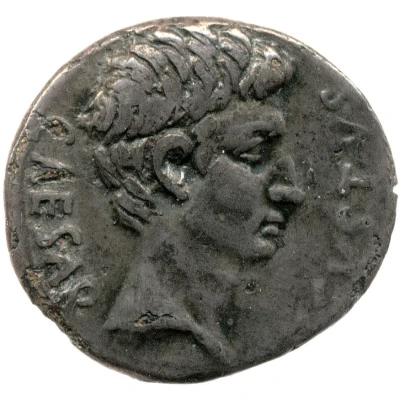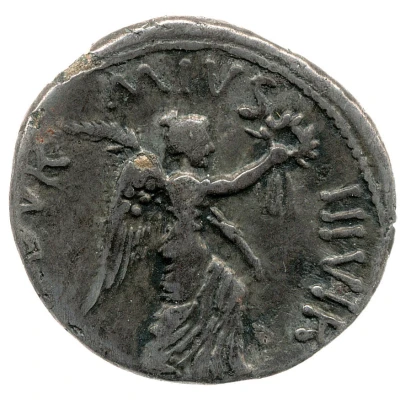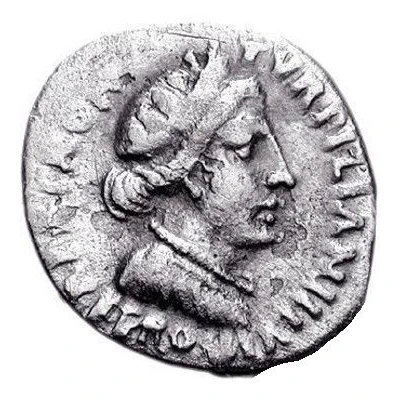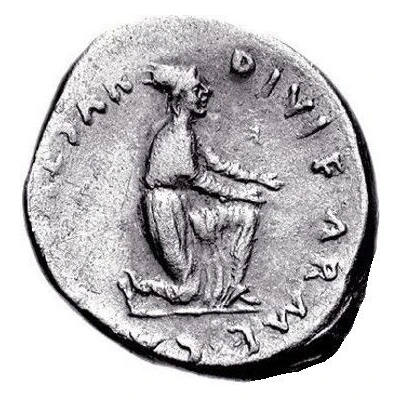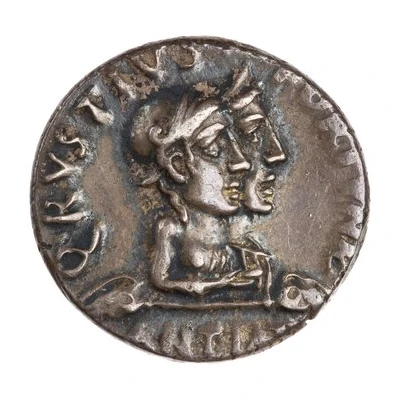
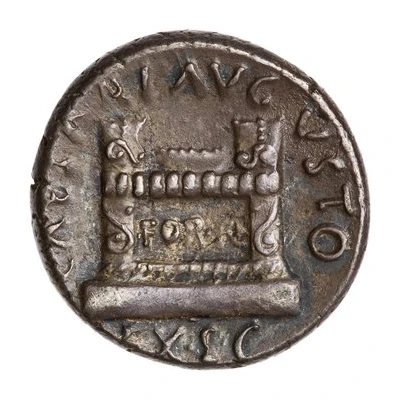

© American Numismatic Society (ANS)
Denarius CAESARI AVGVSTO EX SC FOR RE; Fortuna Victrix and Fortuna Felix 19 BC - 4 BC
| Silver | 3.8 g | 18.5 mm |
| Issuer | Rome › Roman Empire (27 BC - 395 AD) |
|---|---|
| Emperor | Augustus (Caius Octavius) (27 BC - 14 AD) |
| Type | Standard circulation coin |
| Years | 19 BC - 4 BC |
| Value | 1 Denarius |
| Currency | Denarius, Reform of Augustus (27 BC – AD 215) |
| Composition | Silver |
| Weight | 3.8 g |
| Diameter | 18.5 mm |
| Shape | Round (irregular) |
| Technique | Hammered |
| Demonetized | Yes |
| Updated | 2024-10-06 |
| Numista | N#247802 |
|---|---|
| Rarity index | 100% |
Reverse
Ornamented altar inscribed FOR RE.
Script: Latin
Lettering:
CAESARI AVGVSTO EX SC
FOR RE
Translation:
Caesari Augusto, Ex Senatus Consultum. Fortuna Redux.
Of Caesar Augustus, by decree of the senate. To Fortune, who [safely] returns [travelers].
Comment
Mass varies: 3.29–4.19 g;Diameter varies: 17–20 mm;
Source: Online Coins of the Roman Empire (OCRE)
Interesting fact
The Denarius coin features an image of Fortuna, the Roman goddess of luck and prosperity, on one side, and an image of Caesar Augustus on the other. The inclusion of Fortuna's image on the coin was a strategic move by Augustus to associate himself with the goddess and thereby promote the idea that his rule was blessed by the gods and would bring prosperity to the Roman people. This coinage was a significant departure from the Republican era, where coins typically featured images of gods and goddesses, but not living rulers. Augustus' decision to feature himself on the coinage was seen as a way to solidify his power and establish a cult of personality around his leadership.
